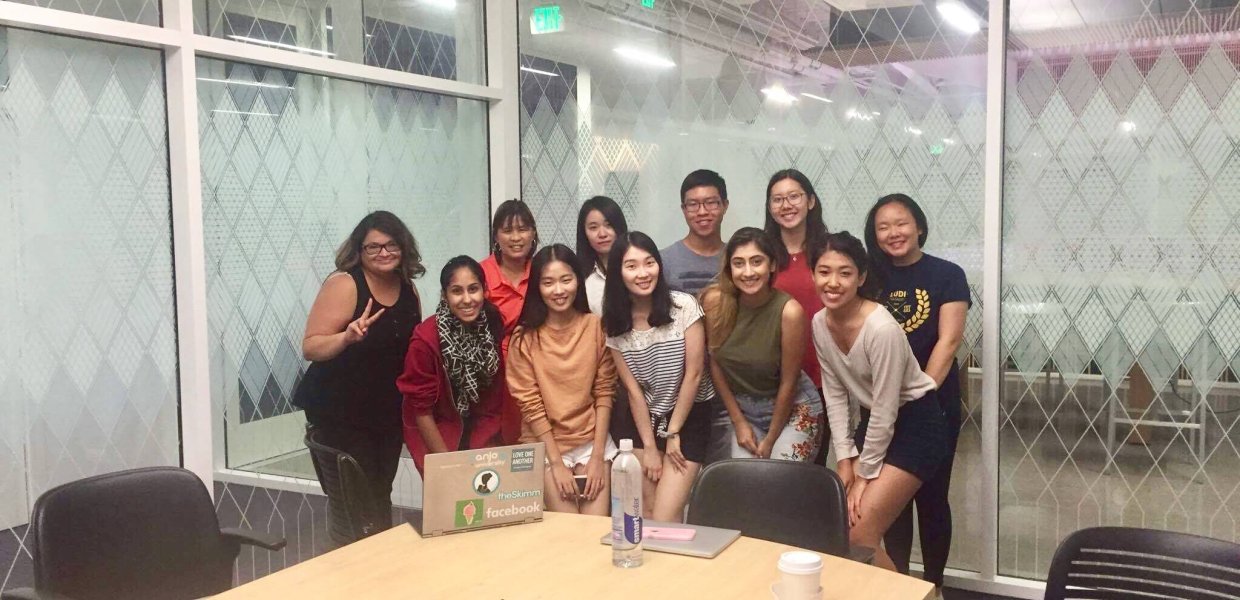Two Annenberg students create a USC chapter of the Asian American Journalists Association (AAJA) to empower and mentor Asian journalists.
Erika Lee and Tara Ruff, both journalism majors in their final year at USC, felt that the Annenberg School for Communication and Journalism needed a space for Asians journalists.
“AAJA’s mission means empowerment to me,” Ruff ’18 said. “It means providing that opportunity for Asian American journalists to be in newsrooms producing their own content that reflects the diversity of the country.”
Those who have joined the club see it as a large step forward for Asian journalists at the school. Before the creation of the USC chapter of AAJA, only a few Asian journalism majors were a part of the national chapter of the organization and only a select number of events were hosted and put on by the Los Angeles chapter.
“That fight for inclusion is so important because diversity on all levels makes for better journalism and invites different voices and different perspectives that matter to different communities,” said senior Sanika Bhargaw, a board member and journalism major.
The organization has expanded since it first began and is continuing to grow — AAJA is developing a social media presence and has participated in recruitment at involvement and career fairs.
“It is important to have strong student organizations to create community, come together and talk about common challenges and triumphs while supporting each other as much as we can,” said Amara Aguilar, associate professor of professional practice and one of the club’s advisors.
In the upcoming months, the organization plans to develop a mentoring program.
“We’re going to pair upperclassmen with underclassmen who have the same career goals,” Lee said. “For example, we can pair people who are interested in print or broadcast or sports together.”
Lee believes that these connections will bridge some of the gaps felt by Asians in the newsroom.
“Students will partner with a mentor who can help guide them through their career and school struggles and celebrate their milestones, while building a personal friendship and relationship,” she said.
Since the beginning of the school year, the organization has co-sponsored several large events including a journalism internship panel that included Los Angeles Times journalists, as well as other television and radio journalists. They were also involved in co-sponsoring a Google News Lab training. Members also try to regularly attend events outside the walls of USC through the Los Angeles chapter of the AAJA.
“We all went to that conference in Philadelphia this past summer,” Lee said. “It was so exciting to see many like-minded people and connect with journalists of color who are where I want to be in the future.”
Ruff continued by saying, “I think the future for AAJA is so bright. I am so proud of starting this revolutionary club at USC and I believe we will only go up from here. I am so happy I got to be a part of working towards this important cause.”
Next spring, USC AAJA’s plans to host a panel event with KABC-TV anchor David Ono.
